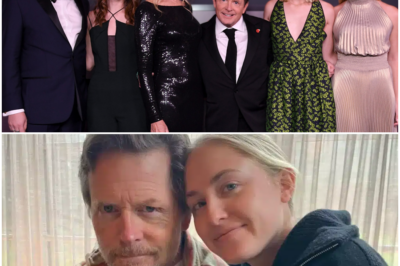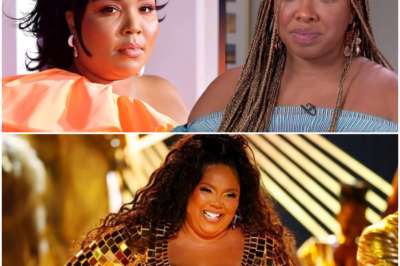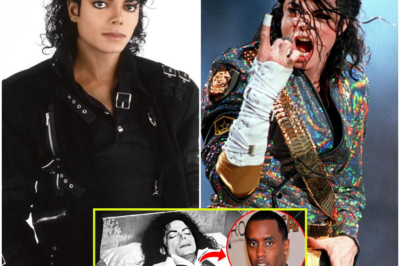Sofia Vergara, renowned for her roles in Modern Family and her entrepreneurial ventures, has long been admired for her strength and grace in the face of adversity. However, few people know that her path to stardom was marred by personal tragedy — her brother, Rafael Vergara, was killed by a cartel when Sofia was just a young woman. His death, a result of the violent Colombian drug wars of the 1980s, left an indelible mark on Sofia and her family. But remarkably, Sofia has found a surprising source of empathy in one of the most notorious figures of the drug trade: Griselda Blanco, the so-called “Cocaine Godmother.”

Griselda Blanco, infamous for her ruthless reign over the Medellín Cartel in the 1970s and ‘80s, was a key figure in establishing drug routes from Colombia to the U.S. Her actions led to the deaths of countless individuals and the expansion of cartel violence, with her tactics often described as brutal and devoid of mercy. Blanco’s story has been told in countless documentaries and films, with her portrayed as a “psychopath” — a woman whose greed and ambition knew no bounds.
Yet, despite Blanco’s legacy of violence, Sofia Vergara’s relationship with her is far from one of pure condemnation. In a surprising twist, Vergara has expressed empathy toward Blanco, recognizing the complexities that shaped her life. Sofia has often spoken of her belief that Griselda Blanco, like many who turn to crime, was a product of her environment and personal struggles. In interviews, Vergara has suggested that understanding Blanco’s difficult childhood and the systemic issues around poverty and violence in Colombia sheds light on the motivations behind her criminal activities.
For Vergara, this nuanced perspective represents a moment of personal growth. It reflects her deep belief that people are shaped by their circumstances, and even those who commit atrocities can be seen through a lens of empathy. This approach contrasts with the more common view of Blanco as a monster, devoid of redeeming qualities.
Sofia’s empathy toward Griselda Blanco doesn’t mean she condones her actions or excuses the pain caused by Blanco’s criminal empire. Rather, it suggests a more complex understanding of human nature. Vergara, herself a victim of cartel violence, knows firsthand how the drug wars have devastated families and communities. Yet she refuses to let this tragedy define her or prevent her from recognizing the intricate, painful histories that shape people’s lives.
In a world that often glorifies the ruthless figures of crime and power, Vergara’s ability to show empathy toward someone like Griselda Blanco serves as a poignant reminder that understanding the root causes of violence can sometimes lead to greater wisdom. It also offers a glimpse into the heart of a woman who, despite losing her brother to cartel violence, has maintained her compassion and desire for understanding.
News
“¡Impactante! Karoline Leavitt, 27, y Nicholas Riccio, 59: ¿Cómo Superaron la Controversia del Gran Diferencial de Edad en su Relación? ¡La Verdadera Historia Detrás de su Amor Inquebrantable!”
Karoline Leavitt’s Heartfelt Wedding Reveal: Fans React to Her Age-Defying Love Story with Nicholas Riccio Karoline Leavitt, the 27-year-old former…
“Shocking News: Four of Michael J. Fox’s Kids Reveal a Life-Changing Announcement – What Are They Sharing That Has Everyone Talking?”
Michael J. Fox, an award-winning actor known for his numerous roles, considers fatherhood his most cherished role. Despite his successful…
“Shocking Murder Mystery: Was Wendi Adelson Behind the Plot to Kill Her Ex-Husband Dan Markel? The Truth About His Killing and Where She Is Now!”
Over a decade after Dan Markel was murdered at his Florida home, his ex-wife, Wendi Adelson, and her family are…
Lizzo and the Lawsuit from Dancers: The Aftermath on Television
Lizzo and the Lawsuit from Dancers: The Aftermath on Television In 2023, Lizzo, the famous singer known for her confident…
“Drew Barrymore: The Secret Behind the Smile – Is the WGA Strike Battle Still Ongoing?”
“Drew Barrymore: The Secret Behind the Smile – Is the WGA Strike Battle Still Ongoing?” In 2023, Drew Barrymore –…
“Shocking Revelation! Michael Jackson’s Grave Opened After 15 Years: What Was Found Inside Shocks the World”
The Shocking Revelation About Michael Jackson’s Grave: What Was Found After 15 Years Changes Everything We Knew Michael Jackson, the…
End of content
No more pages to load












